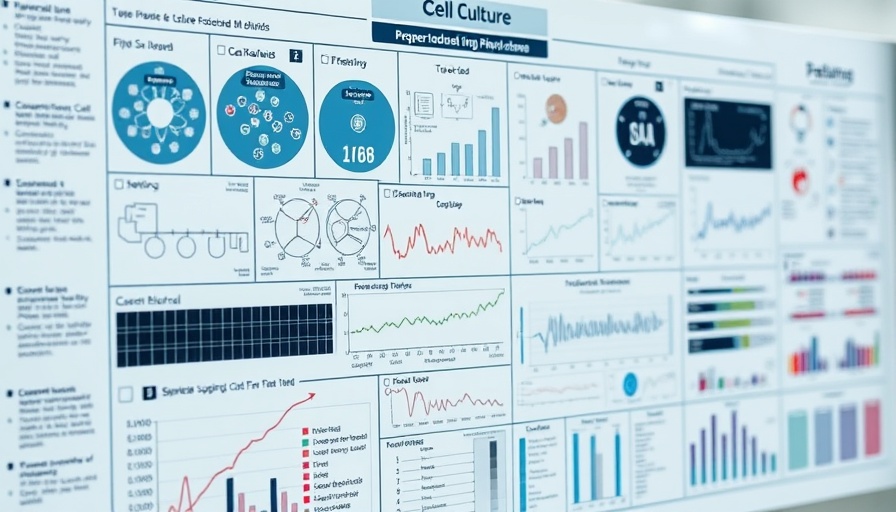
A New Dawn for Serum-Free Cultures in Biotechnology
In recent science news, the emergence of artificial intelligence in biotechnology is reshaping the way we understand biological variability and serum-free culture media. Traditionally, cultivating cells has heavily depended on the inclusion of animal serum, which can introduce variations that complicate research results. However, with the recent advancements in AI, researchers are now able to develop high-performance serum-free culture mediums, promising more consistency and reliability in cell cultures.
Why Serum-Free Systems Matter
Using serum in cell cultures often leads to inconsistent results due to the variability in serum composition. This can hinder the reproducibility of experiments, a critical aspect of scientific research. The beauty of a serum-free culture medium is that it can standardize conditions, allowing for more accurate comparisons across different experiments. By utilizing AI to analyze vast amounts of biological data, researchers can tailor these mediums to better meet the needs of specific cell types, ultimately enhancing research outcomes and fostering advancements in fields like drug development and regenerative medicine.
Understanding Biological Variability
The power of AI lies in its ability to process and learn from extensive biological datasets, enabling it to recognize patterns that human scientists might overlook. These patterns contribute to our understanding of biological variability—the differences in how cells react under various conditions—which is crucial for developing effective therapies. With AI's capabilities, researchers can optimize culture mediums based on the unique needs of different cell lines, significantly improving the performance of serum-free systems.
A Step Toward a Sustainable Future
As we explore the implications of these advancements, it's evident that moving towards serum-free media also aligns with sustainable practices in biotechnology. Reducing reliance on animal products not only benefits the research integrity but also addresses ethical concerns regarding animal welfare. In a world that increasingly prioritizes sustainability and ethical practices, this shift reflects a significant forward movement for both industry standards and public health.
Implications for Future Biotechnology
As these AI-driven methodologies become more integrated into biotech labs, we could witness a significant reduction in costs and time for developing new drugs and therapies. This transformation stands to benefit not only researchers but also patients awaiting innovative treatments. Furthermore, with ongoing improvements in AI algorithms, the potential for creating even more sophisticated and effective culture mediums appears boundless.
In conclusion, the merging of AI with biotechnology to enhance serum-free culture media exemplifies the inspiring potential of modern science. By embracing these technologies, we pave the way for more ethical, sustainable, and effective research practices. This evolution encourages us to remain curious and engaged with the scientific advancements that may soon transform health care as we know it.
 Add Row
Add Row  Add
Add 




Write A Comment